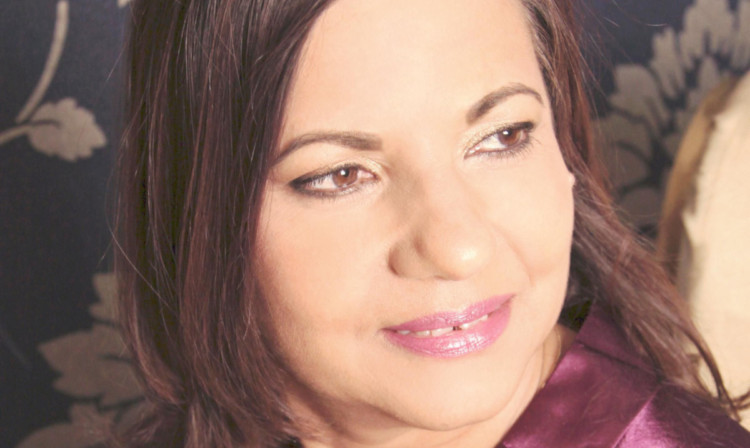A wheelchair-bound East Wemyss woman is set to tackle the Forth Road Bridge for charity this weekend.
Jeeta Ouston, 55, suffers from one of the world’s most common inherited neurological conditions, Charcot-Marie-Tooth (CMT), and is raising money for the charity CMT UK.
She said: “This will be quite a challenge for a wheelchair user as the bridge isn’t even and is also pretty long, but it’s for a great cause and I’m looking forward to it.
“I met my husband Richard through CMT UK as he also has the condition and my daughter Ravi inherited CMT from me, so it’s a charity close to my heart.”
The charity supports people who have been diagnosed with the condition and also funds research. Currently incurable and steadily progressive, CMT affects around 23,000 people in the United Kingdom, causing muscle weakness in the lower legs and hands. It is named after the scientists who discovered it.
Jeeta said: “I’ve been through several operations to deal with problems caused by CMT and because the condition affects my legs and feet, I struggle with my mobility. Last year, due to muscle weakness, I fell and fractured my left femur.
“Despite two operations, the bone failed to heal and has been replaced with a steel bone. So far, all is good but I’m still using a wheelchair, which I intend to put to good use by crossing the bridge and raising money.
“I hope as many people as possible will come along on the day to support me and also consider donating to this worthwhile cause.”
This month CMT support groups across the UK, US, France and Australia are joining forces to raise awareness of the condition among the general public, as well as within the medical profession.
Early detection can improve the lives of those with CMT. However, while most people are diagnosed in adolescence or early adulthood, for others it is not identified until later in life because of a lack of awareness of the condition. In the meantime, people who have CMT are fatigued, walk awkwardly and endure painful limbs, twisted ankles, balance problems and falls for many years without ever knowing why, leaving them feeling bewildered and isolated.
Jeeta added: “There is still so much to be learned about CMT and while we’re on the right track, extra funding will help us accelerate the research process. With most conditions, a gene is missing and researchers need to find out what must be inserted. But with the most common type of CMT, there is an extra gene that must be turned off. There are three main types of CMT and various classifications within each type, so it is much more complicated.”
CMT UK is a registered charity set up in 1987. To find out more visit www.cmt.org.uk and to sponsor Jeeta’s charity effort visit her fundraising page www.justgiving.com/JeetaOuston.
Jeeta will set off on Saturday at 9.30am from the south side of the bridge.
